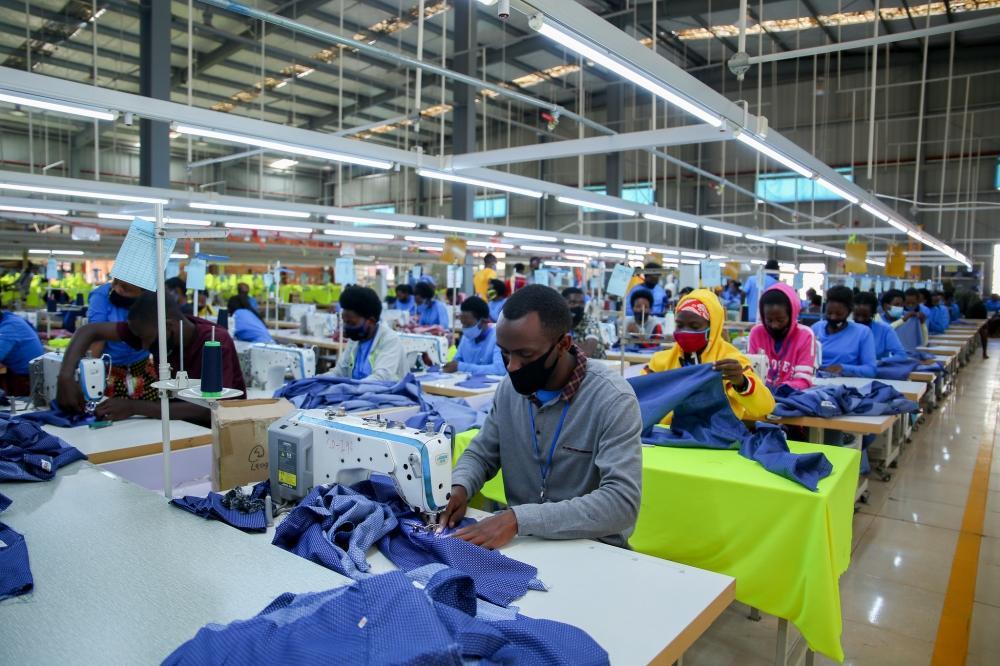Jarvis Shema
Africa-Press – Rwanda. Rwanda’s Central Bank has earned a reputation for its policy discipline and innovation, but a critical question lingers: can the nation sustain its economic momentum in an increasingly volatile global landscape? The National Bank of Rwanda’s identity statement, a commitment to being a “World-class Central Bank that contributes to the country’s macroeconomic stability” isn’t just a mission. It is a promise backed by tangible results. By looking at its recent performance, we can see both the strengths that have defined its success and the emerging challenges that could test its resolve.
Foundation of stability and growth
The Central Bank’s policy efforts have laid a strong foundation for a predictable and stable economic environment. Price stability, in particular, has been a standout success. With an average inflation rate of around 5.1% over the last five years and a medium-term objective of keeping it close to 5%, the Bank has demonstrated a forward-looking, adaptable stance. This consistency has been crucial for instilling investor confidence and supporting the nation’s development.
This stability has translated into robust private sector growth. In 2024, credit to the private sector grew by a solid 11.0%, contributing significantly to the overall expansion of the money supply as well as the overall economic growth. This momentum continued into 2025, with broad money (M3) growing by 25.9% by June. Equally impressive, a large part of this expansion was driven by an increase in net domestic assets, reflecting a growing independence from the risks of external financial inflows.
Navigating risks of external dependence
While domestic credit creation is a positive sign, a growing reliance on external resources is a key risk, exacerbated by a persistent trade deficit. According to the May 2025 Monetary Policy Report, Rwanda’s merchandise trade deficit widened by 10.8% in the first quarter of 2025, as imports grew while exports declined. This widening gap necessitates external financing, which, while temporarily boosting liquidity, ties the nation’s financial stability to global factors.
VIDEO: Central Bank Chief Economist explains recent monetary policy decisions
This exposure directly impacts the Rwandan franc. Rising global interest rates or shifts in investor sentiment could trigger capital outflows, leading to exchange rate volatility. Rwanda has already experienced this, with the franc depreciating by approximately 18% in 2023 and a further 9.4% in 2024 against the US dollar. Such volatility risks fueling imported inflation and complicates the central bank’s ability to achieve its inflation target of 2-8%.
Path forward: Fostering resilience
To mitigate these vulnerabilities, the central bank must continue to strengthen domestic financial resilience. Key strategies include enhancing domestic savings mobilization, and, further even, contributing to the developing local capital markets to create more stable funding sources. This potential domestic resilience will not only reduce exposure to external shocks but also support the central bank’s long-term goal of macroeconomic stability.
Government initiatives like the “Made in Rwanda” campaign are a key step in this direction. They aim to boost local production, reduce import dependency, and strengthen the export base. This is a crucial complement to monetary policy. In this context, the central bank’s recent policy decisions, such as the slight 25 basis points increase to the Central Bank Rate in August 2025, show a commitment to managing inflation and providing a predictable environment for both borrowers and lenders.
Resilient future
The central bank has demonstrated steady and disciplined policymaking that has laid a strong foundation for stable and sustainable economic growth. The journey to becoming a high-income country by 2050 will require careful and effective navigation of key challenges like the trade deficit and external vulnerabilities.
However, Rwanda has shown a powerful combination of resilience and effective leadership. The foundation is strong, and the central bank appears well-positioned to steer the course toward a better future, provided it continues to deepen domestic financial structures and anchor inflation expectations amid a changing global tide. Rwanda has overcome immense adversity in its recent past, and its displayed resilience suggests that it is well-positioned to continue building a more prosperous future.
Source: The New Times
For More News And Analysis About Rwanda Follow Africa-Press






